
32 Books to Read During the World Cup
One Great Book from Each Country
Some people wait for new books from their favorite writers for years on end. Some people wait for the FIFA World Cup for years (well, four) on end. And of course, a few of us wait for both—and while by my count, we’ve still got about five years before we can expect our next Donna Tartt novel, the 2018 World Cup starts today, with host country Russia taking on Saudi Arabia beginning at 11am EST.
To celebrate, because both reading and soccer (football) are fun, I’ve recommended a book to read from each country with a team in the group stage—all by natives of the country in question, and (for the most part), set there. It goes without saying that no book can summarize an entire country—these are merely recommendations, to kick things off (as it were), and more are always welcome. So if you need something to occupy your thoughts and hands between games, or if you want to deepen your newfound Iceland fandom by digging into some of its hometown literature, or if you’re just interested in picking up a bunch of good books over the next few weeks—read on.
GROUP A
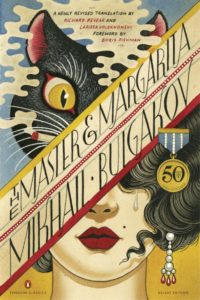 Russia
Russia
The Master and Margarita, Mikhail Bulgakov, tr. Richard Pevear and Larissa Volokhonsky
For the questionable host country, an unquestionable classic: Bulgakov’s sharp and hilarious novel of what happens when the Devil comes to Moscow. There are plenty of great Russian novels, of course, and read War and Peace if you must, but this is the novel I recommend above all others.
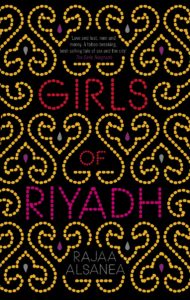 Saudi Arabia
Saudi Arabia
Girls of Riyadh, Rajaa Al-Sanea, tr. Marilyn Booth
A modern epistolary novel (read: emails) that chronicles the lives and loves of three young Saudi women from the “velvet class,” full of enough sex, drinking and other illicit activities to make it an instant bestseller and an instant banned book in Al-Sanea’s home country.
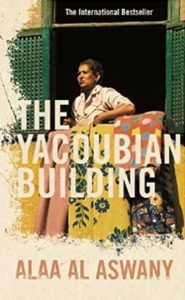 Egypt
Egypt
The Yacoubian Building, Alaa Al Aswany, tr. Humphrey Davies
This bestselling (and controversial) novel is, as the title suggests, set in and around a single building in downtown Cairo in the early 90s, whose inhabitants scheme, fall in love, study, make plans, and get in trouble in a series of interlocking vignettes.
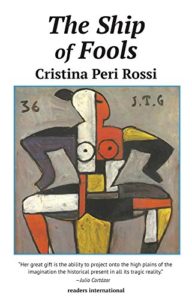 Uruguay
Uruguay
The Ship of Fools, Cristina Peri Rossi, tr. Psiche Hughes
An experimental novel from an iconic (and exiled) Uruguayan feminist which follows another exiled character, Ecks, through his travels and various encounters, as he finds his worldview challenged again and again.
GROUP B
 Portugal
Portugal
The Book of Disquiet, Fernando Pessoa, tr. Margaret Jull Coasta
The beauty of this book is that you can read (or at least start to read) a masterpiece in fits and starts between games—taking in one or another of the sometimes unfinished, often short sections of this semi-fictional semi-diary by a modernist master. Plus, in my view, there’s just no beating that goddamn beautiful cover.
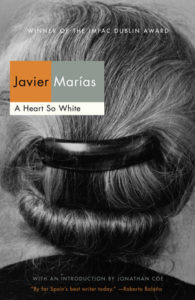 Spain
Spain
A Heart So White, Javier Marías, tr. Margaret Jull Costa
A hypnotic, brilliant novel for which there can be little effective summary, but suffice it to say that it is a relentless investigation into both past and present, both father and self by one of the best writers working today.
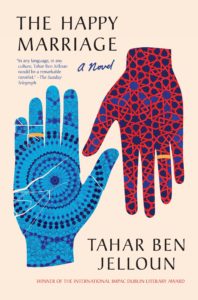 Morocco
Morocco
The Happy Marriage, Tahar Ben Jelloun, tr. André Naffis-Sahely
The story of a relationship in Casablanca, told from two perspectives—the husband, writing after being paralyzed by a stroke, and then the wife, after she finds his account and feels compelled to correct it. As Aaron Bady put it on this very website, he is “the sort of writer who gets mentioned every year as a possible contender for the Nobel, though he’s probably too good to ever get it.”
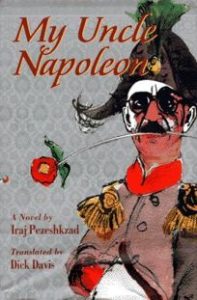 Iran
Iran
My Uncle Napoleon, Iraj Pezeshkzad, tr. Dick Davis
A modern classic of Iranian fiction, irreverent and satirical, published in the 70s and immortalized by a popular television adaptation. More importantly, the novel, Azar Nafisi writes in an introduction to the Modern Library edition, “is in many ways a refutation of the grim and hysterical images of Iran that have dominated the Western world for almost three decades . . . this novel represents Iran’s confiscated and muted voices, revealing a culture filled with a deep sense of irony and humor, as well as sensuality and tenderness.” If the World Cup is all about growing closer and understanding one another’s cultures, this could be (a small piece of) the ticket.
GROUP C
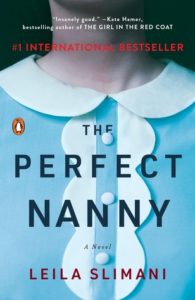 France
France
The Perfect Nanny, Leila Slimani, tr. Sam Taylor
France is another country whose literary classics are very familiar to Americans—Camus, Proust, Flaubert, Stendhal, Colette, Hugo—so I’ll choose a contemporary novel: Leila Slimani’s The Perfect Nanny, translated by Sam Taylor, which won the Prix Goncourt in 2016 and appeared in English this year. It’s a compelling unpacking of class, race, and parenthood in present-day France, inspired by a famous and grisly American murder case.
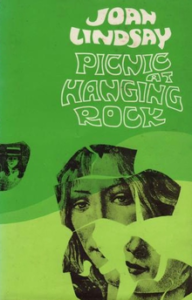 Australia
Australia
Picnic at Hanging Rock, Joan Lindsay
Obviously, especially if you’ve only seen it on screen. But I also want to throw in a pitch (I know, wrong sport) for Murray Bail’s Eucalyptus, which is equally wonderful if somewhat less iconic.
 Peru
Peru
The King is Always Above the People, Daniel Alarcón
Ditto the above for Mario Vargas Llosa. Instead I’ll recommend the most recent collection by the wonderful Peruvian-American writer Daniel Alarcón (whose stories are typically set in unnamed places, but close enough), which Laila Lalami called “a fresh look at migration, the oldest story of all.” And hey, if you don’t have time for a whole book, you could also just read this wonderful story about Alarcón’s father’s relationship to soccer—and his local fame calling imaginary games.
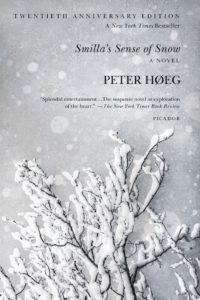 Denmark
Denmark
Smilla’s Sense of Snow, Peter Høeg, tr. Tiina Nunnally
One of the forerunners of the Scandinavian crime fiction craze—and still one of the best.
GROUP D
 Argentina
Argentina
Ficciones, Jorge Luis Borges
It’s impossible for me not to give Borges top billing here, but it smarts a little, so please also consider the following: everything by Julio Cortázar (but particularly Hopscotch), everything by César Aira (but particularly Ghosts), Samanta Schweblin’s Fever Dream, and everything else on this list.
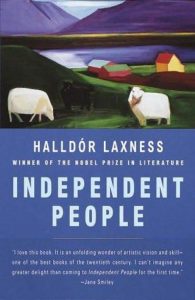 Iceland
Iceland
Independent People, Halldór Laxness, tr. J. A. Thompson
It seems as though pretty much everyone in Iceland is a novelist—some math tells us that one in ten Icelanders will publish a novel (though more recently, Britain has taken the lead in published titles per capita)—so there are a surprising number of books to choose from, considering the size of the country. I’ve gone with this wonderful, warm epic by Iceland’s only Nobel Prize winner, which may be the most famous outside of the country, but I also want to put in a plug for poet, novelist and somteime-Björk collaborator Sjón.
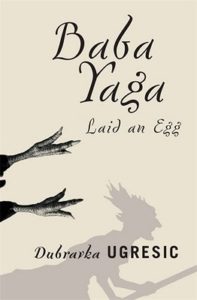 Croatia
Croatia
Baba Yaga Laid an Egg, Dubravka Ugrešić, tr. Ellen Elias-Bursac
All of Ugrešić’s work is great—and her Ministry of Pain, though set in Amsterdam, is perhaps best—but I have a thing for folklore, and specifically for Baba Yaga, the forest crone of your dreams. So I must recommend this postmodern, metafictional treatment of the myth, wound up with three moving stories of women, each working whatever magic is available to them.
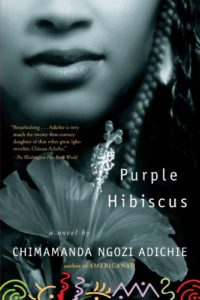 Nigeria
Nigeria
Purple Hibiscus, Chimamanda Ngozi Adichie
Oh, there’s so many great Nigerian writers: Ben Okri, Wole Soyinka, Chinua Achebe, Chinelo Okparanta, Ayobami Adebayo, Helon Habila, Teju Cole, etc. etc. etc. I know Adichie gets a ton of press already, but most people have only read Americanah, and I am here to prosthelytize for her debut, a study of a troubled Nigerian family plagued by violence.
GROUP E
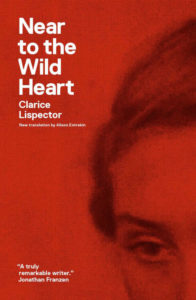 Brazil
Brazil
Near to the Wild Heart, Clarice Lispector, tr. Alison Entrekin
God damn it, I love Clarice Lispector. (I’m not the only one.) I can’t remember where it takes place, because that doesn’t matter in the least—it’s all about the internal life of Joana, who I could just sit around and listen to forever. Like this: “I will surpass myself in waves, ah, Lord, and may everything come and fall upon me, even the incomprehension of myself at certain white moments because all I have to do is comply with myself and then nothing will block my path until death-without-fear, from any struggle or rest I will rise up as strong and beautiful as a young horse.”
 Switzerland
Switzerland
Selected Stories, Robert Walser, tr. Christopher Middleton
A glorious and sorely underappreciated Swiss writer whom Susan Sontag called “a Paul Klee in prose—as delicate, as sly, as haunted. A cross between Stevie Smith and Beckett: a good-humored, sweet Beckett . . . the missing link between Kleist and Kafka, who admired him greatly.” Everyone loves Walser’s 1909 novel Jakob von Gunten, but his stories are even better for me. For a harder-edged but also good Swiss writer, try Max Frisch.
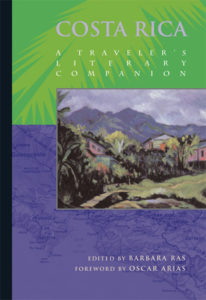 Costa Rica
Costa Rica
Costa Rica: A Traveler’s Literary Companion, ed. Barbara Ras
There is bizarrely little Costa Rican fiction available in English, so I am reduced to recommending this short story anthology aimed at English-speaking travelers to the region, which collects twenty-six stories written by authors native to the country. It actually sounds kind of great.
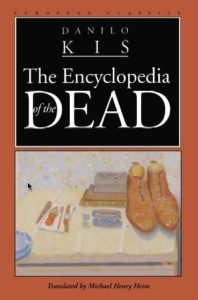 Serbia
Serbia
The Encyclopedia of the Dead, Danilo Kiš, tr. Michael Henry Heim
A famously Borgesian collection of stories from one of the best Yugoslav writers, though as Nicholas Lezard put it in The Guardian, “there’s something warmer about Kiš, something that for all its intelligence knows more the pain of being human. He is one of those writers you feel is on your side.” Which makes him doubly appealing during World Cup time.
GROUP F
 Germany
Germany
Visitation, Jenny Erpenbeck, tr. Susan Bernofsky
It has been pointed out to me that W. G. Sebald isn’t for everybody, and that I ought to stop recommending him willy-nilly, which frankly is baffling, but fine. Here’s another great German writer, and another great book: the story of a house, sitting on the edge of a lake in Brandenburg, and the parade of people who occupy it over the years—and of course, the war. It is gorgeous, much like the passing ability of the German soccer team.
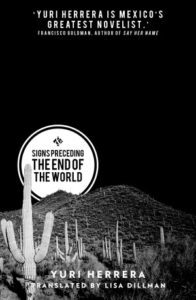 Mexico
Mexico
Signs Preceding the End of the World, Yuri Herrera, tr. Lisa Dillman
Another huge country with tons of great literature available in English. This one, a mythic novel of crossing borders, seems particularly relevant at the moment. And while we’re on the subject, here are fourteen other books by contemporary Mexican authors that you should read.
 Sweden
Sweden
The 100-Year-Old Man Who Climbed Out the Window and Disappeared, Jonas Jonasson, tr. Rod Bradbury
A truly delightful romp about—well, a 100-year-old man who climbs out the window of his nursing home and proceeds to wander around Sweden having adventures. If you’re not in the mood to laugh—your team has just been knocked out of the tournament, say, and you need something a little darker—there’s always John Ajvide Lindqvist’s Let The Right One In, which is equally brilliant and utterly opposite in tone.
 South Korea
South Korea
The Vegetarian, Han Kang, tr. Deborah Smith
I don’t even care if it wasn’t translated properly—however it came to be, this book is perfection: sexy, frightening, philosophical, cosmic. I read it in one sitting, making a series of tiny gasps that only increased in volume until I finally closed the book and had to go lie down for a while.
GROUP G
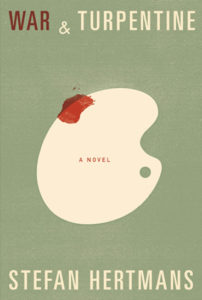 Belgium
Belgium
War and Turpentine, Stefan Hertmans, tr. David McKay
I want to suggest that you supplement your World Cup viewing by re-reading all the Tintin books—because that would just be heaven, and also because Kevin De Bruyne is Tintin in the flesh—but mostly they don’t take place in the country, so try this strange novel (for lack of a better word) based on the notebooks Hertmans’ grandfather, a painter and a WWI veteran, left behind.
 Panama
Panama
When New Flowers Bloomed: Short Stories by Women Writers from Costa Rica and Panama, ed. Enrique Jaramillo Levi
Another shockingly difficult category, and another short story collection—this one also including Costa Rica, as you can see.
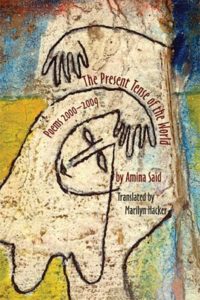 Tunisia
Tunisia
The Present Tense of the World: Poems 2000-2009, Amina Saïd, tr. Marilyn Hacker
This list, I’ve noticed, is lacking in poetry, though I think poetry is even more appropriate to read during long tournaments (where there may be only brief periods of downtime between all the cheering and rooting). Aditi Machado locates place and language as Saïd’s main interests here, and writes: “Sometimes it is place that urges the soul to speak, to describe and remember, to praise and eulogise; sometimes it is language itself that creates place. The complexities of these interactions have yielded a voice filled with terror and grief at the world, but also wonder and pleasure, a search for answers.”
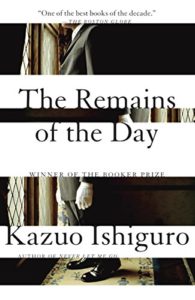 England
England
The Remains of the Day, Kazuo Ishiguro
There are a billion great English novels, of course. You know many of them. But this seems as good a time as any to read (or re-read) what is perhaps still the best (and most aggressively English) novel ever written by our most recent Nobel Laureate in literature (especially because there may not be another one for a while—Laureates, that is, not Ishiguro novels).
GROUP H
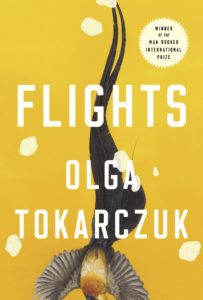 Poland
Poland
Flights, Olga Tokarczuk, tr. Jennifer Croft
My favorite Polish novels are probably Stanislaw Lem’s Solaris and Witold Gombrowicz’s Cosmos, and of course Bruno Schulz’s The Street of Crocodiles if we’re talking stories, but here I’m going to go out on a limb and recommend a book I haven’t yet read, which is not yet available in the US, because it just won the Man Booker International Prize (the first time for a Polish writer) and because it sounds fantastic: “It is a novel of intuitions as much as ideas,” wrote Kapka Kassabova in a review, “a cacophony of voices and stories seemingly unconnected across time and space, which meander between the profound and the facetious, the mysterious and the ordinary, and whose true register remains one of glorious ambiguity.” You can’t read this during the World Cup, unless you’ve got a connection I don’t know about—but maybe as a celebratory after party?
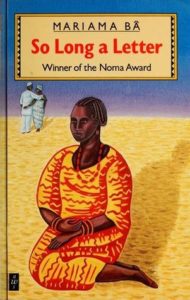 Senegal
Senegal
So Long a Letter, Mariama Bâ, tr. Modupé Bodé-Thomas
A semi-autobiographical epistolary novella which begins with a letter from a woman who has recently lost her husband, writing during her four month period of morning to her lifelong best friend. Highly intellectual and highly pained, she begins to recount all of the joys and sorrows and betrayals of their 25 years of marriage. Since its publication in 1981, So Long a Letter has become a classic feminist text, but it’s also just great prose.
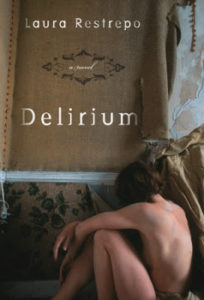 Colombia
Colombia
Delirium, Laura Restrepo, tr. Natasha Wimmer
I’m assuming you know about Gabriel García Márquez, so let’s move on. Another great Colombian writer is Laura Restrepo, whose Delirium begins when a man comes home from a business trip to find that his wife has gone mad. He then begins to attempt to unravel the many mysterious threads that led to her strange incapacitation.
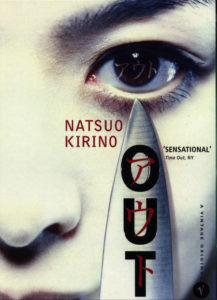 Japan
Japan
Out, Natsuo Kirino, tr. Stephen Snyder
There are many great Japanese novels translated into English to choose from—I also want to plug my other current favorites The Woman in the Dunes, by Kobo Abe, and Quicksand, by Junichiro Tanizaki—but I’ve picked Out because it is great, engrossing and terrifying enough that you might actually be willing to miss a couple of games for it.
Emily Temple
Emily Temple is the managing editor at Lit Hub. Her first novel, The Lightness, was published by William Morrow/HarperCollins in June 2020. You can buy it here.



















